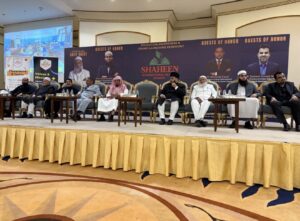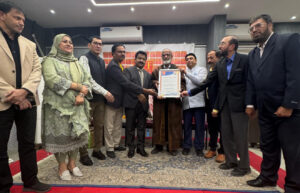
Hyderabad, July 6, 2025 – In a landmark ruling, the Telangana High Court has introduced a comprehensive step-by-step procedure for granting Khula, a form of divorce initiated by Muslim women under Islamic law, reinforcing their autonomy by eliminating the need for the husband’s consent. The decision, delivered on June 25, 2025, by a division bench comprising Justices Moushumi Bhattacharya and B.R. Madhusudhan Rao, has been hailed as a progressive step toward gender justice and marital equality under Muslim personal law.
The court emphasized that a Muslim woman’s right to seek Khula is absolute and does not require her husband’s approval or a specific reason for seeking divorce. The ruling clarifies that while Khula is a recognized right under Islamic law, it must be processed through family courts to ensure legal validity and enforceability, rather than by religious bodies such as muftis or sharia councils. The court stated, “The wife’s right to demand Khula is absolute and does not have to be predicated on a cause or acceptance by the husband,” underscoring that the court’s role is to provide a judicial stamp on the dissolution of marriage.
Key Guidelines for Khula
The Telangana High Court laid down a structured roadmap for Khula proceedings, balancing Islamic traditions with modern judicial oversight:
- Reconciliation Efforts: Reconciliation attempts, as mandated by Quranic directive (Chapter 4, Verse 35), are a prerequisite before granting Khula. Family courts must facilitate mediation to explore the possibility of resolving disputes.
- Judicial Oversight: Only courts, or a qazi officially appointed under the law, have the authority to validate Khula. Religious bodies like sharia councils or muftis can offer advisory opinions but cannot issue binding divorce certificates.
- Summary Process: The court’s inquiry into a Khula request should be summary in nature, avoiding prolonged evidence-based adjudication. The process involves verifying the wife’s request and ensuring her willingness to return the mahr (dower), if applicable.
- No Veto Power for Husbands: The husband’s refusal cannot override the wife’s decision to seek Khula. However, he retains the right to negotiate the return of the mahr or challenge the process in court.
Background and Case Details
The ruling came in response to an appeal filed by Mohammed Arif Ali, who challenged a 2020 Khula certificate issued by the Sada-e-Haq Sharai Council, a non-statutory body, to his wife, Afsarunnisa, after he refused consent. The wife had approached the council following repeated disputes and failed reconciliation attempts. The family court upheld the Khula in February 2024, prompting the husband’s appeal. The High Court dismissed the appeal, affirming the family court’s decision and clarifying that religious bodies lack the authority to issue legally binding divorce certificates.
The court referenced the Quran and Hadith, noting that Islamic law does not prescribe a mandatory procedure requiring the husband’s consent for Khula. This aligns with a 2022 Kerala High Court judgment, which similarly declared Khula as an unconditional right for Muslim women, placing it on par with Talaq, the unilateral divorce right available to Muslim men.
Reactions and Implications
Legal experts and women’s rights advocates have praised the ruling as a significant step toward empowering Muslim women. Advocate Mubasher Hussain Ansari, who argued the case, described it as “a balance between traditional Islamic practices and modern ideas of justice and gender equality.” The decision is seen as a beacon of hope for Muslim women trapped in unhappy marriages due to patriarchal interpretations or lack of legal awareness.
However, the ruling has sparked debate. The All India Muslim Personal Law Board (AIMPLB) called a meeting on July 1, 2025, to discuss its implications, with some expressing concerns about potential misuse of the unilateral right to Khula. Critics argue that the decision could disrupt traditional practices, while supporters view it as a necessary reform to align personal laws with constitutional principles of gender justice.
Broader Context
The Telangana High Court’s verdict follows a Supreme Court ruling in April 2025, which emphasized that Khula must be processed through courts for legal recognition. The High Court’s guidelines provide clarity and structure, ensuring that Khula proceedings are swift, transparent, and legally enforceable. This decision is expected to influence family courts across India, streamlining the process for Muslim women seeking divorce and reinforcing their autonomy under the law.
The ruling marks a significant milestone in the ongoing discourse on marital equality and the intersection of personal laws with constitutional rights, setting a precedent for future cases involving Khula.
For more updates on legal reforms and gender justice, stay tuned to YaHind.Com.



